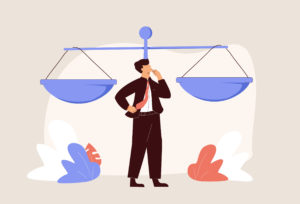Lawmakers Vote To Make Three Tax Provisions for Businesses Permanent
Late last year lawmakers in Washington extended a bill that made three important tax provisions for businesses valid through December 31, 2014. That means those provisions were good for last year’s taxes, but expired when the clock struck midnight on January 1, 2015. The extension was welcome news last year for many businesses. Now there is more good news, as Congress recently voted to make those provisions permanent with a new bill: HR 636.
The three provisions in question are Section 179, Section 1374 and Section 1367(a)(2). With the Section 179 provision taxpayers would permanently be allowed to expense up to $500,000 in qualified assets, instead of just a mere $25,000 without the provision. That is a huge break for many businesses.
Provision Section 1374 has to do with corporations and how they pay taxes. S Corporations typically don’t pay corporate–level taxes. However, C corporations do pay those taxes. When a C corporation chooses to become an S corporation it and purges its assets within a 10-year period it must pay a tax on those gains. However, with Provision 1374 in place the waiting period is cut in half to just five years.
It used to be that when an S Corporation donated appreciated property to a charity it qualified for a fair market value deduction. The shareholders were then required to reduce their basis in the S Corporation’s stock. However, under the Section 1367 provision, those shareholders simply have to reduce their basis according to their share of the adjusted basis of the property that was donated.
If these provisions are passed and become law, they would greatly benefit small businesses. By knowing these provisions are permanent year-round, businesses would be able to better plan their purchases and sales throughout the year. Hopefully this bill is passed by the Senate and signed by the president.
Does Your Company Need a Fairness Opinion?
Does Your Company Need a Fairness Opinion? Although not required by statute or regulation, fairness opinions have become an important component of the board of directors and executives deliberation process as they seek to satisfy their fiduciary duties to shareholders and act with due care in an informed manner. Fairness opinions are prepared for and…
Tax Record Retention Guide
Storing tax records: How long is long enough? Tax Record Retention April 15 has come and gone and another year of tax forms and shoeboxes full of receipts is behind us. But what should be done with those documents after your check or refund request is in the mail? Federal law requires you to maintain…
3 Reasons Why Owning a Commercial Property May Make You More Money in Real Estate Investment
Making a Commercial Property Investment If you ever have been a landlord for residential property, I am sure that you get complaints from tenants about leaking roofs in the middle of the night. But what keeps most people back from investing in commercial real estate is the fear of the unknown since not many of…
Sec 1045: Small Business Stock Rollover of Gain
The Beauty of Section 1045 Enacted as part of the Taxpayer Relief Act of 1997 (effective for sales after August 5, 1997), a taxpayer other than a corporation may elect to roll over capital gains from the sale of qualified small business stock held for more than six months if another small business stock is…



